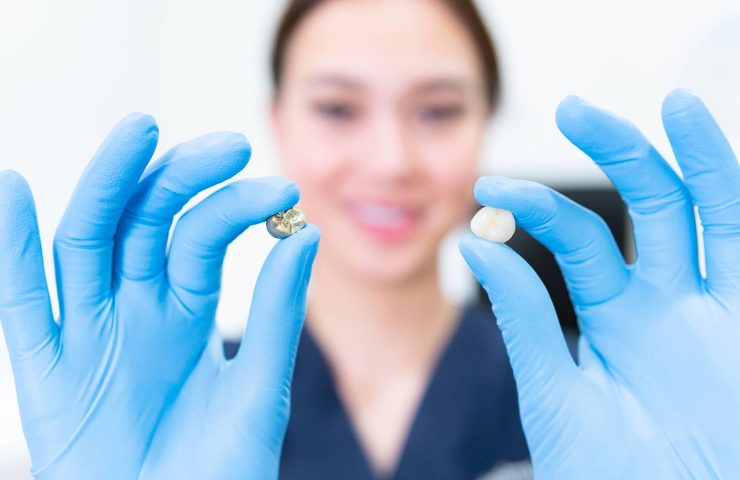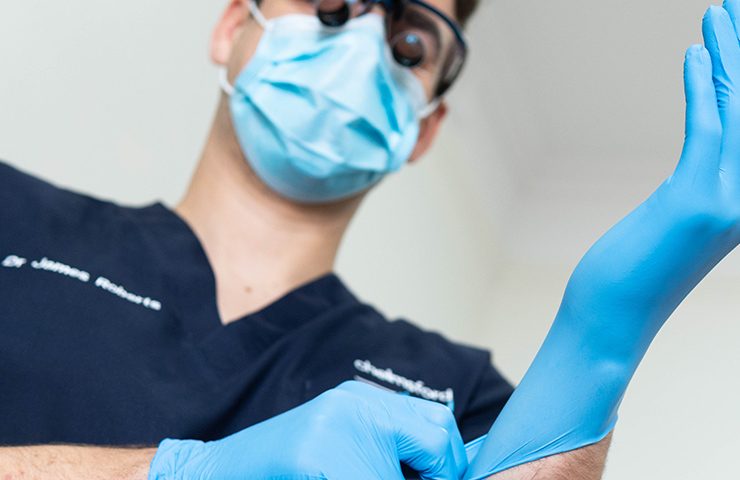Crowns are a way of repairing and protecting damaged or fractured teeth and improving their appearance.
This restorative procedure can strengthen damaged or fragile teeth and help return your smile to a healthy condition.
Every tooth contains fine spaces inside known as root canals. Inside these canals is the dental pulp, which contains nerves and blood vessels.
A crown is a manufactured prosthetic tooth that fits over your existing tooth, protecting it much like a crash helmet.

First, any decay is removed, and any fractures or breaks in the tooth are repaired with filling material. This acts as the foundation for the new crown. The tooth is then filed down evenly by 1-2mm, which allows space for the crown to fit onto the tooth. A 3-D digital scan is then taken of your teeth which is used to manufacture a crown that fits perfectly over your tooth.
A temporary crown is placed for 7-10 days while the permanent crown is manufactured. The temporary crown is then easily removed and the permanent crown is cemented in place.

Dental crowns can be an option for covering a tooth that is too broken or decayed to hold a filling.
Crowns can also be used to:
Our staff are more than happy to answer any questions or queries you may have.
A crown is a cap used to restore function to a tooth, protect a badly broken down tooth from further damage, or improve a tooth’s appearance.
A bridge, unlike a crown, uses existing teeth to help fill in a gap left by a missing tooth. A bridge utilizes a prosthetic tooth that is anchored in the gap between the two adjacent teeth to establish a natural-looking appearance.
Both procedures are straightforward, safe, affordable and offered by our practice. Call Chelmsford Dental today to book a consultation with one of our dentists.
Once your crown is fitted, good oral hygiene practices are crucial. You must brush and floss twice daily, taking extra care to floss around your crown
Other important recommendations for caring for your crown include:
Although the crown itself cannot decay, decay can happen at the join between the crown and the tooth, making oral hygiene crucial to the health of your teeth and the lifespan of the crown.
Generally, crowns last between 10 to 15 years, but exceptional oral hygiene and seeing your dentist regularly may prolong the lifespan.
If you are curious to learn more about crowns or would like to find out if you are a good candidate for this restorative procedure, please feel free to contact us and book an appointment with one of our dentists.
Explore
© 2025 Chelmsford Dental Mount Lawley. All rights reserved. Privacy Policy. Web Design & SEO by Digital Hitmen.